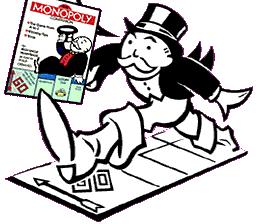 |
 The two sides in the Microsoft antitrust case delivered their closing arguments in the ongoing case between the software giant and the US Department of Justice last week. The two sides in the Microsoft antitrust case delivered their closing arguments in the ongoing case between the software giant and the US Department of Justice last week.Now US District Judge Thomas Penfield Jackson must decide whether Microsoft is a bullying monopolist that squashed competition and stifled innovation or a software company struggling to survive, like many others, in a highly competitive industry. The case has received a considerable number of column inches over the past months, and the local IT community is united in its sentiment against the software giant. Lindsay Taylor, project coordinator at Queensland TAB would not guess the antitrust trial's outcome, but was adamantly against Microsoft's approach to market. "I'm not willing to speculate, the legal system has very little to do with reality," Taylor said. "I don't know the legal definition of monopoly." "But for all practical purposes, Microsoft is indeed a monopoly. It's up to the court to decide if that is the case." Taylor said Microsoft was a monopoly because "it set itself up to become the de facto standard". "The communications protocols and file formats are proprietary, they're not published," he said. "I'm not criticising the goal, I'm attacking Microsoft's method," Taylor said. "Novell NetWare had total dominance a few years ago, then Microsoft knocked them off when it released Windows 95 and NT 4. Those systems gave away everything you could get in a Novell system, but for free," he said. Brad Scott, SCO's managing director, believes the eventual outcome will be the key positive aspect of the trial. "The trail highlighted the possible negative impact on the end-user community of a monopolistic company," Scott said. "If Microsoft engaged in monopolistic practice, eating up competition, this has opened people's eyes to the fact that there is competition, and hence alternatives in the space in which MS competes," he said. The IT manager at Interflora, Peter Roderick, says Microsoft will receive a "rap over the knuckles", if anything, as punishment. "The result of the case will be rules and legal constraints," he said. Bernie Esner, PC consultant at IDC, said the case had very little bearing on the local market. "It's such a drawn out case...it just seems to be spinning its wheels at the moment," Esner said. "Do people really care? Looking at it overall, for a person buying a computer for corporate or personal user...I don't think so." The two sides in the antitrust case completed their closing arguments last week. Microsoft chief trial counsel John Warden challenged assertions by government attorneys that Microsoft had engaged in heavy-handed tactics intended to stifle innovation and that it should be punished for anti-competitve acts. "The antitrust laws are not about the government picking winners or losers," Warden said. "Consumers pick winners or losers under our system." Pointing to the America Online acquisition of Netscape, the introduction of Web-based applicatiions and the Linux open souce operating system, Warden argued Microsoft is facing constant competition. "Even monopolists are supposed to compete hard to win all the competition they can, and such competition plainly benefits consumers," Warden said. The government emphasised two key points in its closing arguments: Microsoft's overwelming dominance of the computer operating systems arket, and its propensity towards using that power to hamstring some of the strongest companies in the computer industry, including Netscape, Intel and Compaq. "Microsoft has maintained an unshakeable tranglehold on the market for PC operating system software," said Stephen Houck, an antitrust attorney representing New York state, one of 19 joining the Justice Department in its suit against the software giant. Houck said that Microsoft has enjoyed more than 90 per cent market share for its operating systems since 1991. The case is now officially submitted to Judge Jackson, who is expected to issue his ruling on the facts of the case later this year. After that, both sides will submit written proposals of how they think the judge should tailor his final ruling. Judge Jackson is expected to ask both sides to argue those proposals before him as well. The final ruling is not expected until early next year. |